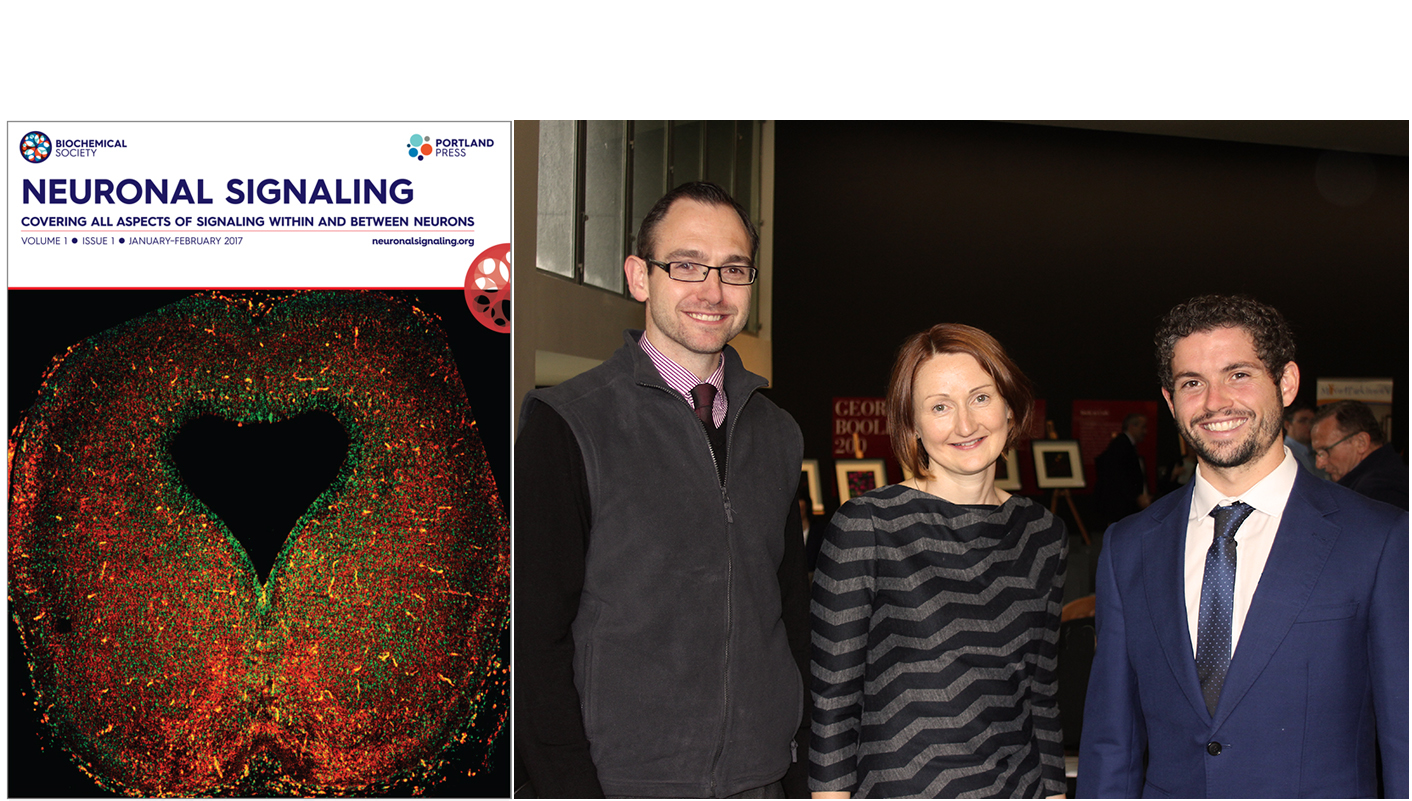Aideen Sullivan Editor in Chief Neuronal Signalling puts heart into her work

Congratulations to Professor Aideen Sullivan who has been appointed Editor in Chief of the recently launched journal 'Neuronal Signaling'. Developed by the Biochemical Society and published by Portland press, Neuronal Signaling publishes high-quality molecular and cellular neuroscience research.
In the first edition Editor in Chief Professor Aideen Sullivan introduces readers to the aims and scope of this exciting new publication in her introductory Editorial.
The Biochemical Society webpage has posted a blog by Prof Sullivan to coincide with the launch of the journal, in which she discusses how 'one aspect of Neuronal Signaling that is particularly appealing to her is the intention to produce lay summaries of some of the articles. The aim of this is to explain to the public, in non-scientific language, the meaning of the research and the impact that it may have to patients and to society'. And how as scientists, 'we should communicate to the public in plain language, without using jargon. Learning about relevant findings in research will empower patients and help them to manage their own treatment, to shape their own prognosis, and to be involved in the crucial decisions made by their healthcare professionals, which will affect the quality of their lives'.
Cover Image
The cover image “The heart of the brain”: the developing midbrain. A seasonal image which coincides with Valentine's day for the cover of the February publication was provided by Shane Hegarty, Gerard O'Keeffe and Aideen Sullivan. The image shows a coronal section of embryonic day 16.5 mouse midbrain, immunohistochemically stained for tyrosine hydroxylase and green fluorescent protein (GFP). GFP is used to track the expression of signaling molecules that play critical roles in the development of midbrain dopamine neurons, with the aim of translating this information into novel therapies for Parkinson's disease, which is caused by degeneration of this neuronal population.
Cork NeuroScience CNS Centre - Integrating Clinical and Basic Research
Contact us
Cork NeuroScien floor,
